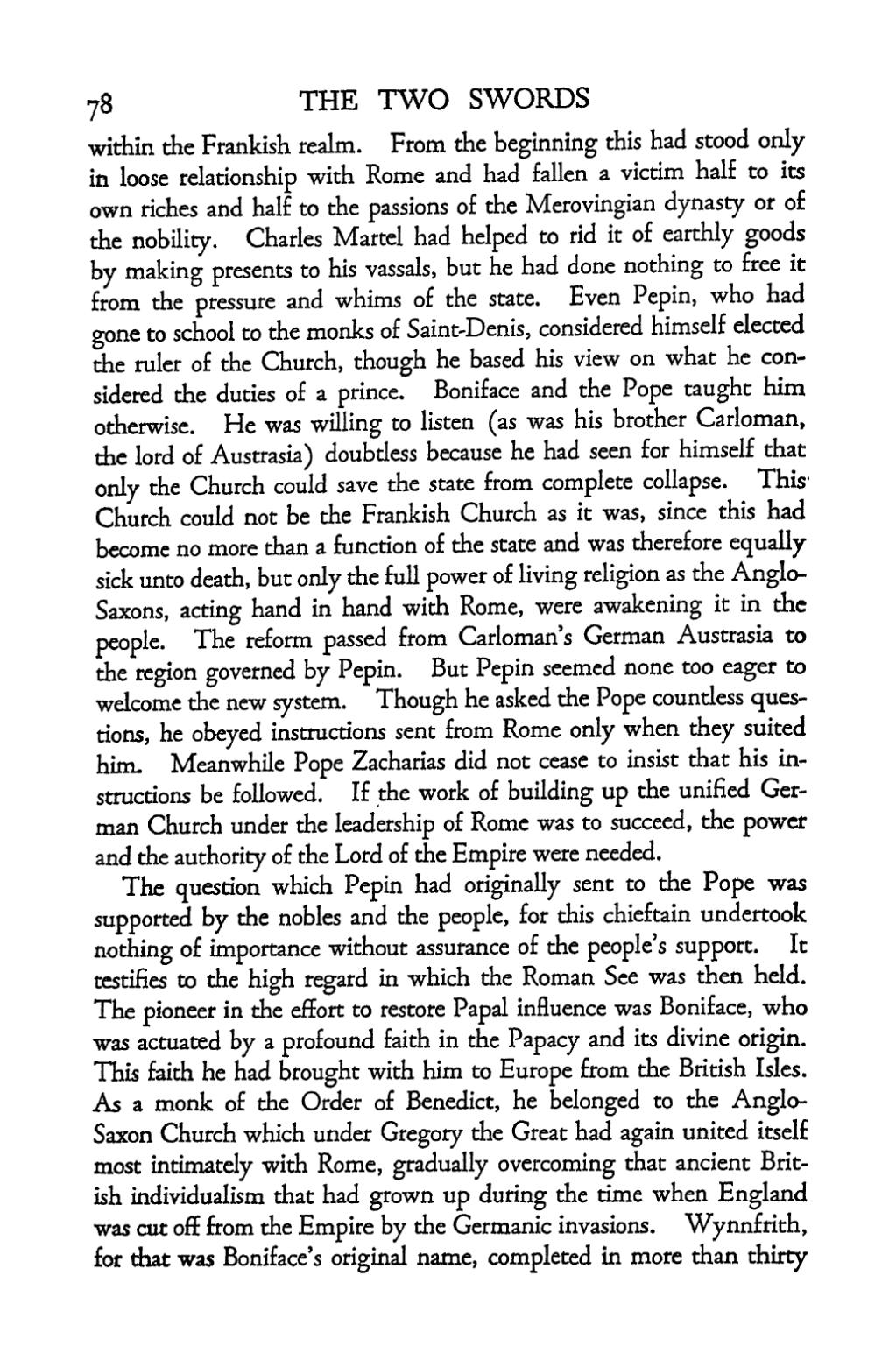8 THE TWO SWORDS
within the Prankish realm. From the beginning this had stood only in loose relationship with Rome and had fallen a victim half to its own riches and half to the passions of the Merovingian dynasty or of the nobility. Charles Martel had helped to rid it of earthly goods by making presents to his vassals, but he had done nothing to free it from the pressure and whims of the state. Even Pepin, who had gone to school to the monks of Saint-Denis, considered himself elected the ruler of the Church, though he based his view on what he con- sidered the duties of a prince. Boniface and the Pope taught him otherwise. He was willing to listen (as was his brother Carloman, die lord of Austrasia) doubtless because he had seen for himself that only the Church could save the state from complete collapse. This Church could not be the Prankish Church as it was, since this had become no more than a function of the state and was therefore equally sick unto death, but only the full power of living religion as the Anglo- Saxons, acting hand in hand with Rome, were awakening it in the people. The reform passed from Carloman's German Austrasia to the region governed by Pepin. But Pepin seemed none too eager to welcome the new system. Though he asked the Pope countless ques- tions, he obeyed instructions sent from Rome only when they suited him. Meanwhile Pope Zacharias did not cease to insist that his in- structions be followed. If the work of building up the unified Ger- man Church under the leadership of Rome was to succeed, the power and the authority of the Lord of the Empire were needed.
The question which Pepin had originally sent to the Pope was supported by the nobles and the people, for this chieftain undertook nothing of importance without assurance of the people's support. It testifies to the high regard in which the Roman See was then held. The pioneer in the effort to restore Papal influence was Boniface, who was actuated by a profound faith in the Papacy and its divine origin. This faith he had brought with him to Europe from the British Isles. As a monk of the Order of Benedict, he belonged to the Anglo- Saxon Church which under Gregory the Great had again united itself most intimately with Rome, gradually overcoming that ancient Brit- ish individualism that had grown up during the time when England was cut off from the Empire by the Germanic invasions. Wynnfrith, for that was Boniface's original name, completed in more than thirty
SAINT
